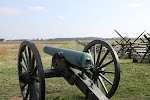Potlikker, a countryfied sobriquet for pot liquor, is the delicate, savory juice left in the bottom of the pot after cooking certain vegetables. It’s the liquid Huey Long said could feed a hungry nation.
The importance of potlikker in feeding the hungry South from pioneer days through the Great Depression and beyond has been commemorated with a new historic marker in Haynesville, Louisiana.
The Claiborne Parish Library obtained a grant from the William G. Pomeroy Foundation’s “Hungry for History” program. The Pomeroy grants recognize foods of regional importance. A marker celebrating the value of potlikker was erected at the future Haynesville branch of the parish library on U.S. 79 early in 2023.
For those who have no knowledge of potlikker (or pot liquor or pot likker), it is the liquid left behind after cooking greens like collards, mustard, and turnip greens or beans. Seasoned properly, a delicious liquid is created suitable for sopping your cornbread in.
According to popular folklore, eating certain foods on New Year's Day guarantees good luck throughout the year. And when you think about it, they all revolve around potlikker.
Peas and beans symbolize coins or wealth. Southerners choose the traditional black-eyed peas seasoned with pork, but lentils or beans work, too. While not as delicate as potlikker from greens, the liquid from the peas is still great with cornbread. When you eat peas, you don’t dish them onto a plate with a slotted spoon. A solid spoon allows for get plenty of potlikker on the plate to sop up with the cornbread.









